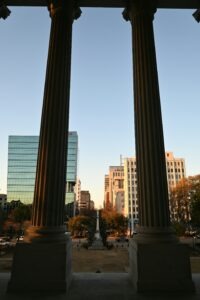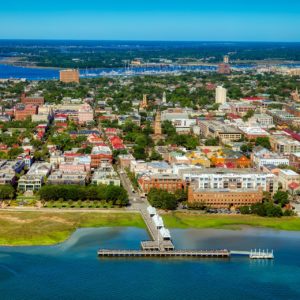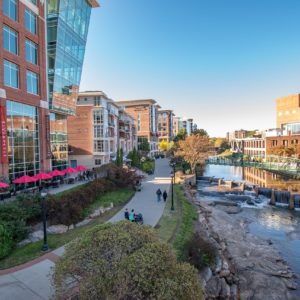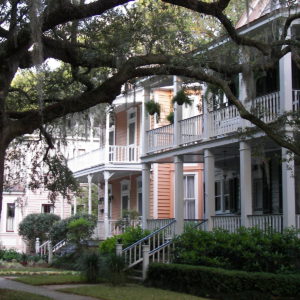Is Columbia SC a Good Place to Live in 2025? 8 Pros and Cons of Living in Columbia SC
When people ask, “is Columbia SC a good place to live?” it’s fair to say that the answer depends, in a way, on your own preferences and priorities.

But, we dug through all the pros and cons of living in Columbia South Carolina to come up with a definitive answer to help you decide if this is the right place for you.
This Southern city, which is that kind of a mix between urban appeal and laid-back charm, offers quite a bit for residents to consider.
Table of Contents
Methodology
So, is Columbia SC a good place to live? To really determine this answer, we took a multi-faceted approach that combined objective data with firsthand insights.
First, we analyzed key metrics like the cost of living, employment rates, and access to amenities using data from trusted sources such as the U.S. Census Bureau and local government reports. This provided a foundation of factual information about Columbia’s economic and social environment.
We also reviewed community feedback and personal testimonials from residents who have lived in Columbia for several years. These accounts were collected from online forums, surveys, and interviews, which helped us capture a more personal perspective on the pros and cons of living in Columbia SC.
In addition, we compared Columbia to similar-sized cities in the Southeast, such as Charleston and Greenville, to provide a more contextual understanding of its unique strengths and challenges.
Finally, we factored in lifestyle considerations like recreational opportunities, educational resources, and climate to offer a balanced view. This approach ensures that our assessment of living in Columbia SC pros and cons is comprehensive and relevant for individuals and families evaluating a potential move.
Is Columbia SC a Nice Place to Live? 4 Pros of Living in Columbia SC
1. Affordable Cost of Living
One reason people might feel drawn to Columbia is its relatively low cost of living. For instance, housing prices here tend to be significantly more reasonable, with the median home price hovering around $200,000.
That makes homeownership a bit more achievable for many families and individuals compared to larger, more expensive cities.
Renters, too, benefit from these lower costs. For example, a one-bedroom apartment typically costs about $1,100 per month, which is noticeably less than in nearby metropolitan hubs.
This affordability extends to groceries, utilities, and healthcare expenses, which are often lower than the national average.
In short, Columbia provides a way to enjoy a comfortable lifestyle without straining your budget. The cost of living might be one of the clearest advantages for those considering making the move.
2. Diverse Job Market
The job market in Columbia might not only be stable but also surprisingly diverse. For instance, the city’s economy thrives on industries like healthcare, education, and government services. The University of South Carolina, which is a major employer, creates plenty of opportunities in education and research.
By the way, Fort Jackson contributes a great deal to the local economy as one of the largest military training bases in the country. Manufacturing and tech industries are also growing, adding more career paths for residents. The unemployment rate in the area is, in fact, usually lower than the national average.
For those starting a career or looking to make a change, Columbia tends to offer options in both traditional and emerging fields, making it a solid choice for professionals.
3. Warm, Welcoming Communities
Columbia is often described as a place where people feel like they truly belong. Neighborhoods such as Forest Acres and Shandon are known for their welcoming atmospheres and strong sense of community.
Residents often talk about how neighbors look out for one another and regularly organize events that bring people together.
Local festivals, charity drives, and weekly farmers’ markets all create opportunities for connection. That feeling of community can be particularly appealing for families or retirees seeking a more supportive social environment. In some respects, it’s the kind of city where forming lasting relationships feels more natural.
So, is Columbia SC a nice place to live? Just based on the people and community itself, we would say absolutely.
4. Access to Outdoor Activities
Nature lovers might find that Columbia offers plenty of options for outdoor fun.
Lake Murray, for example, is perfect for boating, fishing, and swimming, while the Congaree National Park provides a bit of adventure with its hiking trails and kayaking opportunities.
Inside the city, parks and green spaces like Finlay Park and the Riverwalk make it easy to enjoy some fresh air without traveling far.
In other words, Columbia balances urban convenience with access to natural beauty. For families, outdoor spots like Riverbanks Zoo and Garden also offer education and recreation in one package.
Is Columbia SC a Good Place to Live? 4 Cons of Living in Columbia SC
1. Hot and Humid Summers
The weather in Columbia can be, quite frankly, a challenge, especially during the summer months. Temperatures often rise above 90°F, and the humidity makes it feel even more stifling.
For those unaccustomed to the heat, this could be more than just an inconvenience—it might impact daily life.
During these months, energy bills tend to rise as residents rely heavily on air conditioning to stay cool. Outdoor activities might also be limited to early mornings or late evenings to avoid the scorching heat.
So, is Columbia SC a nice place to live? Just based on the weather and unbearable summers, it doesn’t look great.
2. Limited Public Transportation
Public transportation in Columbia might not fully meet the needs of everyone, especially those living outside the downtown area.
The COMET bus system offers services, but its routes and schedules tend to be less comprehensive than in larger cities.
As a result, most residents rely on personal vehicles to get around, which might not be ideal for those without access to a car. Traffic, while not as severe as in major urban areas, can become frustrating during peak hours.
Improving public transit remains an ongoing challenge for the city.
3. Mixed Reviews on Healthcare
While Columbia has several reputable medical facilities, including Prisma Health and Lexington Medical Center, healthcare access might not always meet expectations.
For instance, wait times for appointments could be longer than what some people are used to.
Specialized care options are sometimes limited, which might require residents to travel to larger cities for certain treatments.
In rural areas surrounding Columbia, healthcare disparities could be even more pronounced. That said, the city’s medical resources are improving, but gaps still exist.
4. Challenges in Public Education
The quality of public education in Columbia is a mixed bag. Some schools in districts like Richland One and Richland Two perform well, while others struggle with lower rankings and limited resources.
Parents might find themselves weighing the cost of private schooling against the variability in public school quality. For families, this could be a key factor when deciding if Columbia is a nice place to live.
On the other hand, higher education institutions like the University of South Carolina offer strong academic programs for those pursuing college degrees.
Summary List of Living in Columbia SC Pros and Cons
Pros of Living in Columbia SC
- Affordable Cost of Living: Housing and daily expenses are significantly lower than the national average.
- Diverse Job Market: Opportunities in education, healthcare, government, and emerging industries like tech.
- Warm and Welcoming Communities: Tight-knit neighborhoods and frequent community events foster connection.
- Access to Outdoor Activities: Proximity to Lake Murray, Congaree National Park, and numerous parks for recreation.
Cons of Living in Columbia SC
- Hot and Humid Summers: High temperatures and humidity make summers challenging for many.
- Limited Public Transportation: Public transit options are less comprehensive, requiring reliance on personal vehicles.
- Mixed Healthcare Accessibility: Limited availability of specialists and longer wait times for appointments.
- Challenges in Public Education: Variability in school quality across districts creates disparities in educational opportunities.
Frequently Asked Questions
Is Columbia SC a safe place to live?
Safety in Columbia varies by neighborhood. Some areas have low crime rates, while others experience higher crime levels, so it’s important to research specific locations.
What’s the cost of living in Columbia SC compared to the national average?
Columbia’s cost of living is about 13% lower than the national average, making it relatively affordable.
How hot does it get in the summer?
Summer temperatures typically exceed 90°F, and the high humidity can make it feel even hotter.
Is Columbia SC growing?
Yes, Columbia has experienced steady population growth in recent years, driven by its affordability and economic opportunities.
What industries dominate the job market in Columbia?
Key industries include education, healthcare, government, and manufacturing, with the University of South Carolina and Fort Jackson as major employers.
Articles You Might Also Like





